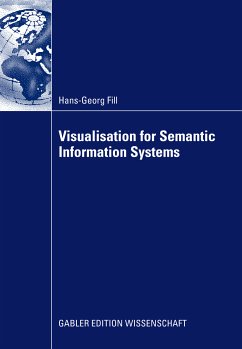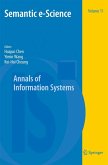The role of semantic information systems in today's enterprises is manifold: It ranges from the support of day-to-day operations up to the level of strategic management and business decision-making. The use of visualisation techniques, therefore, marks an important aspect of these systems. Hans-Georg Fill presents an innovative framework for visualisation based on an analysis of current visualisation approaches in business informatics. It encompasses the creation of visualisations both from a technical as well as a contextual point of view. The author in particular elaborates the concepts of visual objects, ontological visualisation patterns, and semantic visualisation. These allow for the integration of aspects of service orientation into the visualisation process and the semantic-based selections of visualisations for particular tasks. Finally, he supplies an application scenario from the area of IT-based risk management in order to illustrate how the approach can be applied to a concrete domain.
Dieser Download kann aus rechtlichen Gründen nur mit Rechnungsadresse in A, B, BG, CY, CZ, D, DK, EW, E, FIN, F, GR, HR, H, IRL, I, LT, L, LR, M, NL, PL, P, R, S, SLO, SK ausgeliefert werden.
Hinweis: Dieser Artikel kann nur an eine deutsche Lieferadresse ausgeliefert werden.









